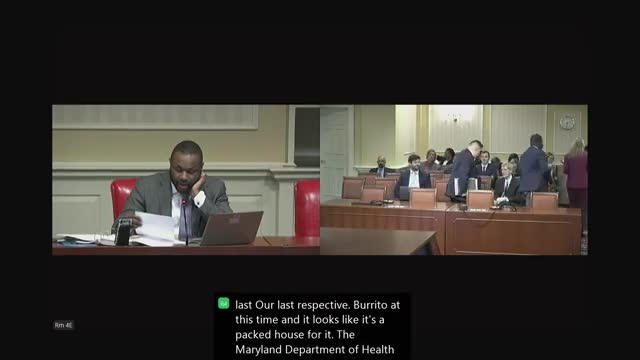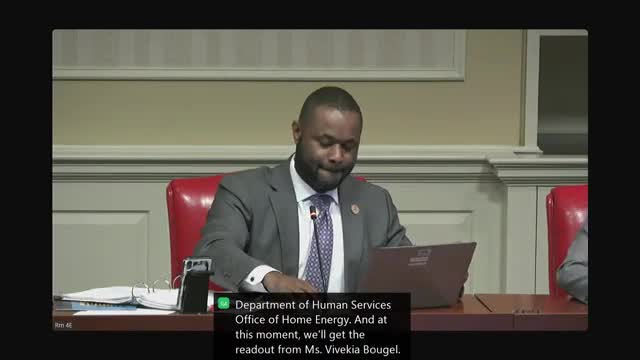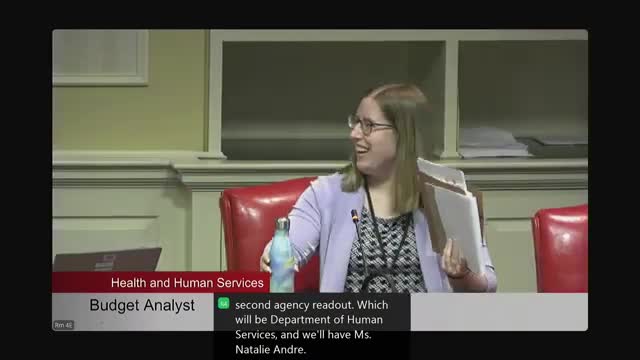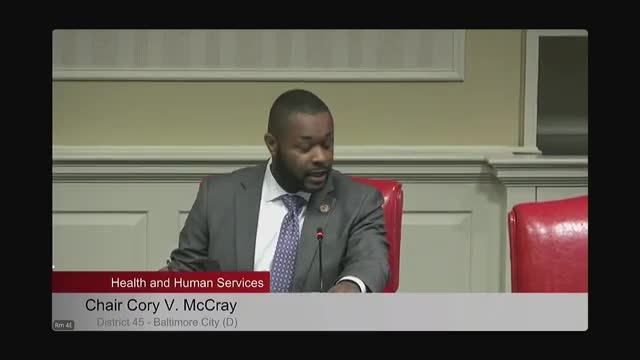Article not found
This article is no longer available. But don't worry—we've gathered other articles that discuss the same topic.

Health commissions face auditing, trauma funding questions and a push to restore school-behavioral health grants

Office of Home Energy Programs sees surge in applications, budget changes and system strain

Child Support Administration faces funding omission, low amnesty take-up and staffing strains

